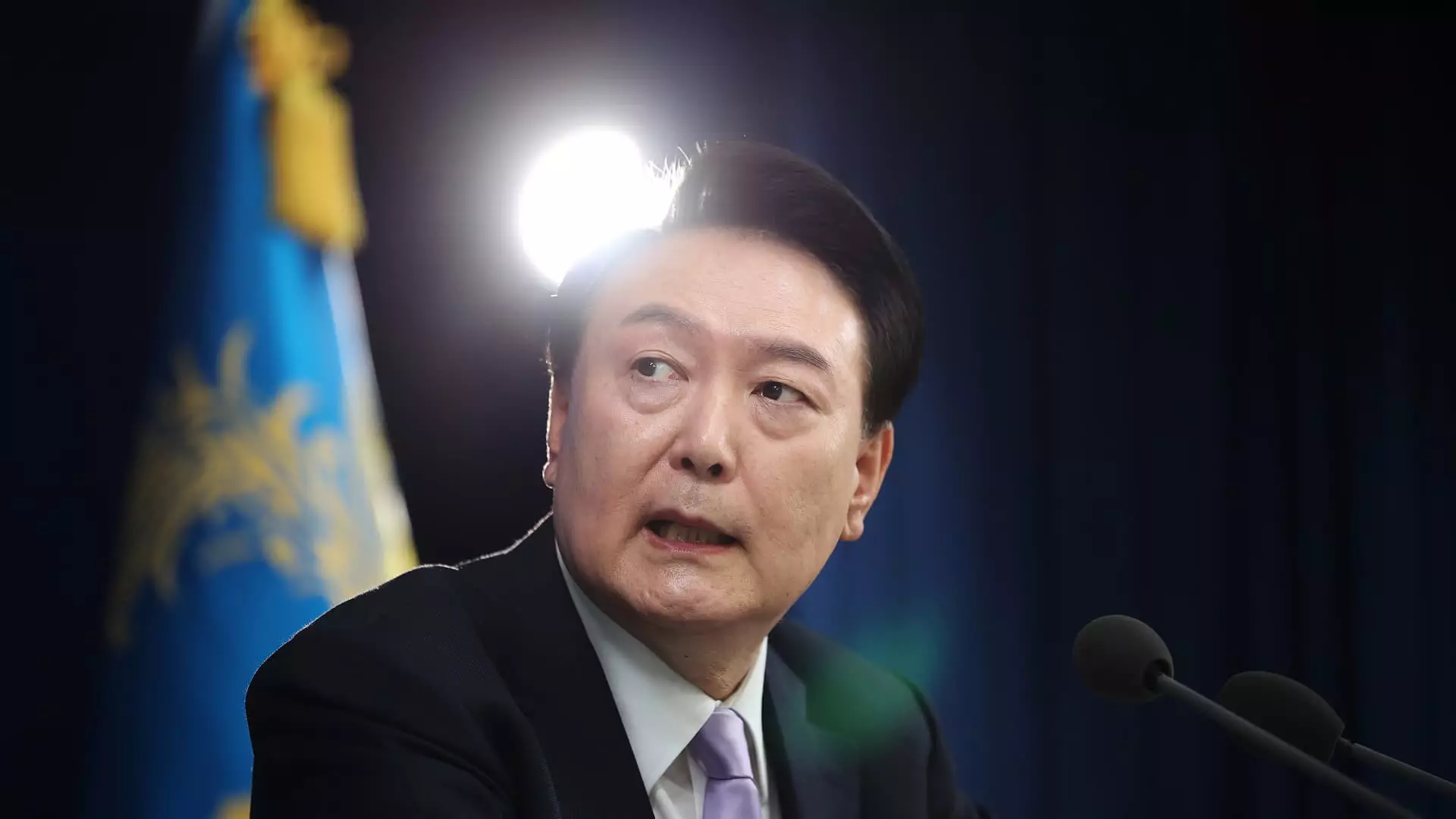The political landscape of South Korea has been shaken to its core following an attempted martial law declaration by President Yoon Suk Yeol. The recent impeachment motion, filed by opposition members in the National Assembly, highlights the growing discontent and division within the nation’s political apparatus. This analysis delves into the implications of the failed impeachment, the surrounding political dynamics, and the potential repercussions for South Korea’s democratic stability.
The impeachment motion against President Yoon required a two-thirds majority in the 300-member National Assembly to pass. However, this critical vote was undermined when lawmakers from Yoon’s ruling People Power Party boycotted the session, effectively ensuring that the required quorum could not be met. This strategic withdrawal raises questions about the opposition’s ability to mobilize public sentiment and challenges the integrity of legislative processes in the face of executive overreach. Although the Democratic Party has indicated plans to revisit the motion, its initial failure strips momentum and raises doubts about the opposition’s capability to capitalize on the current political unrest.
Yoon’s controversial attempt to impose martial law marked the first such declaration since South Korea’s military dictatorship era, which ended in the late 1980s. In defense of his actions, Yoon cited the need to uphold constitutional order against alleged pro-North Korea factions threatening national stability. However, this rationale was met with skepticism and alarm, both domestically and internationally. The swift backlash culminated in a parliamentary resolution to lift the martial law—an event that signals a collective rejection of dictatorial practices. The implications of such an overreach not only jeopardize Yoon’s presidency but also invoke memories of historical struggles for democracy in South Korea.
The fallout from Yoon’s actions has sent shockwaves through South Korea’s financial markets. With volatility rising, the Financial Services Commission has put forward a plan to inject approximately 50 trillion won into stabilizing the economy. Analysts like Adarsh Sinha from BofA Securities have cautioned about potential volatility in the Korean won, suggesting that the currency is already under strain due to fundamental economic conditions. The intertwining of political instability and economic uncertainty presents a dual challenge for South Korea, potentially leading to a crisis that extends beyond mere governance issues.
Despite the setback with the impeachment motion, opposition leaders have a crucial opportunity to redefine their strategy moving forward. The failure of the impeachment does not erase the disillusionment felt among many citizens regarding Yoon’s presidency. Addressing public discontent and presenting a united front could not only revitalize their momentum but also contribute to greater political engagement among voters. The forthcoming attempts to challenge Yoon’s authority will be critical in determining the viability of South Korea’s democratic institutions.
In the wake of this turmoil, President Yoon’s recent televised apology signifies a recognition of the gravity of the situation. His assurance to refrain from invoking martial law again will be crucial in rebuilding trust with the public. However, the potential for future radical actions remains a concern for lawmakers and the populace alike. Fresh leaders within the military and the administration must navigate these turbulent waters, aiming for a synthesis of governance that honors South Korean democratic principles while stabilizing an increasingly fractious political landscape.
South Korea stands at a crossroads, with the specter of martial law highlighting the fragile balance between executive power and democratic governance. As historical precedents loom large, democratic resilience must be prioritized. The failures and successes of this moment in South Korea’s political history can serve as a reminder that democracy thrives on vigilance, unity, and accountability. As the nation progresses, it will be pivotal to ensure that the lessons learned from this crisis contribute to a stronger, more robust democratic framework for future generations.


Leave a Reply